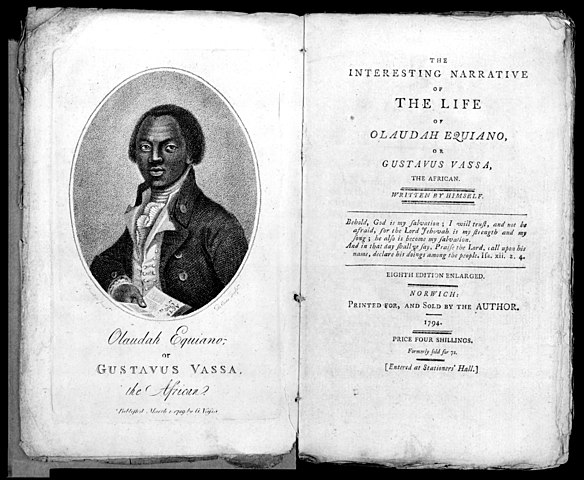This Day In History: March 31st
Imagine being a young pre-teenaged child that is ripped away from your home with no explanation or promise of return. That was the case for Olaudah Equiano, a young man who was captured from his home and forced into slavery along with his sister.
Based on a lack of historical records, it is estimated that Equiano was born circa 1745. Both Equiano and his sister were captured far from the African Coast and were eventually separated. His journey continued and he was forced to move further away from the life he once knew. Like the experiences of many others forced into slavery, Equiano was headed on an unfortunate voyage along the Middle Passage.
He first arrived in Barbados but was not sold during his time there and was shipped to the colony of Virginia. Equiano was purchased in Virginia and sold to Lieutenant Michael Pascal, a Royal Navy officer, who decided to rename him Gustavus Vassa after a Swedish king. During his time with Pascal, Equiano was able to learn the trade and was even allowed to go to London for education. However, his time with Pascal ended when he was sold to another captain and then once more to Robert King.
Three years after being sold to King, Equiano purchased his freedom. He utilized his maritime experience to make a living sailing around the world. By the end of the 1780s, Equiano saw a new vision for himself and became active in the abolitionist movement. After making a return to London, he got connected with leaders of the movement and also decided to convert to Christianity. In 1789 he published, The Interesting Narrative of the Life of Olaudah Equiano or Gustavus Vassa, the African. It became a widely-read autobiography that details Equiano’s early life and path toward freedom.
He was able to promote the book extensively, which helped to further promote ideas of abolition, and it also helped Equiano to amass his wealth. He spoke out against the cruelty of slavery and aided in the readjustment process for individuals like him who were able to receive their freedom. Olaudah Equiano died on March 31, 1797, unable to see an end to the slave trade.








